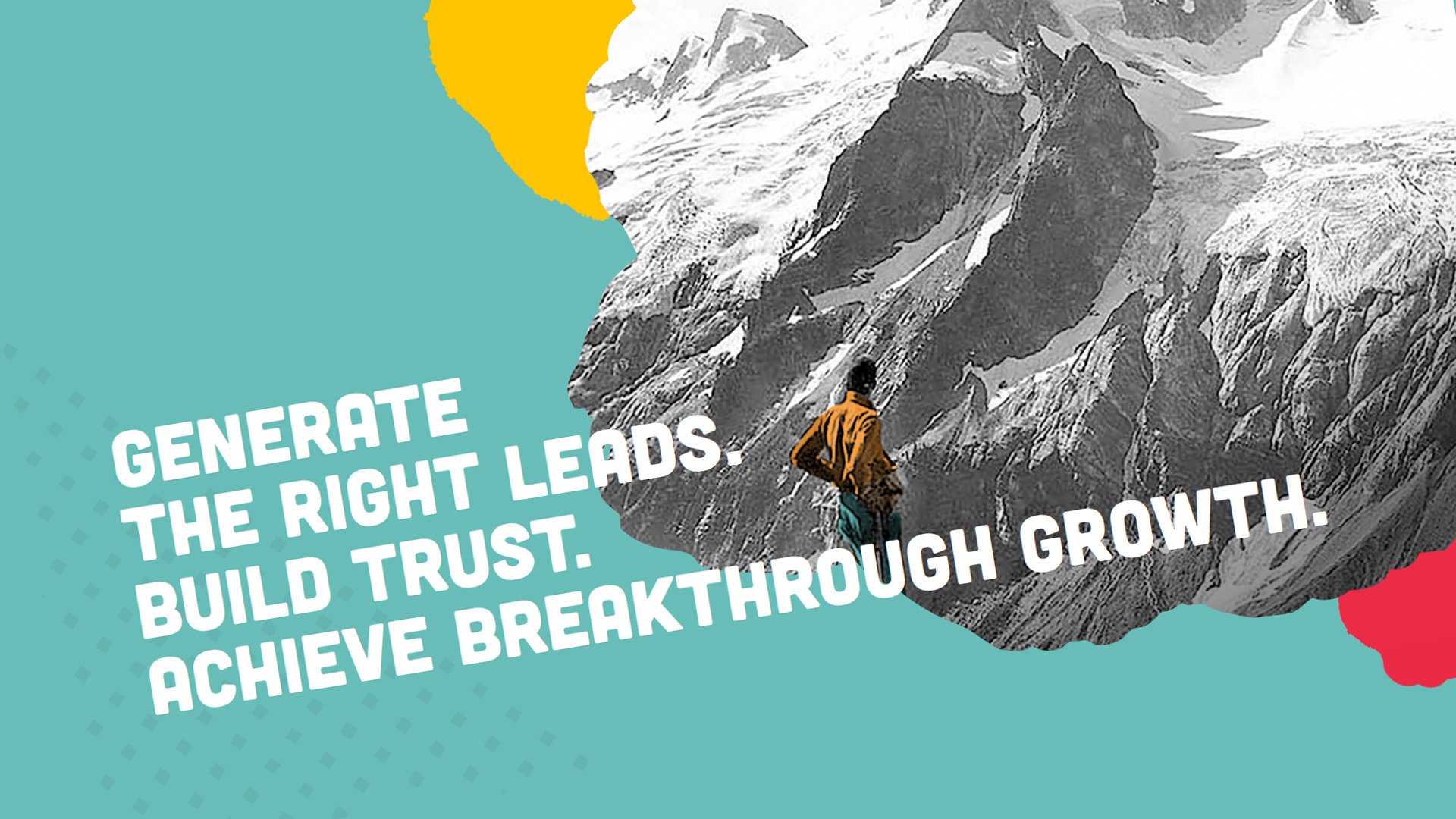The day-to-day work of leading with empathy, clarity, and purpose is difficult. It requires you to make judgment calls and snap decisions that will not only impact the direction of your organization, division, or department, but also your team.
Marketing and sales are fast-paced disciplines that require a relentless focus on results and innovation. Yet, there isn’t much time to stop and think deeply about topics. That’s why I believe that two things are vitally important for any leader in this space:
- A Commitment To Learning: We are only as smart as the knowledge we have. Learning on a consistent basis is essential to not only increasing your knowledge but also making connections between disparate ideas that will spark the next innovation. Like many people, I rely on blogs and trusted publications to stay up to speed on changes. But I’m also a firm believer in books as sources of more timeless information.
- Frameworks That Help You Think Better: As leaders, it’s our job to collect a set of frameworks that will help us think faster and smarter about the work we do so that we can make decisions quicker and drive the right outcomes.
That’s why I wanted to share 4 books + 1 article that inspired me to be a better leader in the last year, and hopefully will inspire you, too.
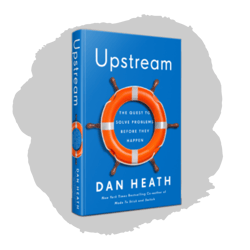 UPSTREAM: THE QUEST TO SOLVE PROBLEMS BEFORE THEY HAPPEN
UPSTREAM: THE QUEST TO SOLVE PROBLEMS BEFORE THEY HAPPEN
Dan Heath has delivered another book (he previously authored Switch and Made To Stick with his brother Chip) that will challenge your thinking and make you act differently as a result. His fundamental premise is that most of us focus on solving the symptoms of problems. But, complex problems are only solved by addressing the root cause that lies upstream from the symptoms we notice.
Key TakeawayS From Upstream
There are so many takeaways from Upstream, but I’ll mention two here.
The first takeaway is one of the reasons why we have trouble moving upstream to solve problems: tunneling. When we tunnel we’re so focused on the immediate symptom that we can’t lift our head up to see the problem as a whole. We tunnel for many reasons but most often it’s because the challenges immediately in front of us seem too urgent to ignore. Heath argues that immediate challenges will always be urgent, so there’s no better time than to step upstream than the present.
The second takeaway is the concept of leverage points. It’s one of the seven components of his solution framework for solving problems upstream. Leverage points allow us to make a significant impact with a small action. But unless you have a solid understanding of the root problem, your intervention won’t have the desired impact. Stepping back to get a really good look at the causes of the problem is the only way to identify where to intervene and to what extent.
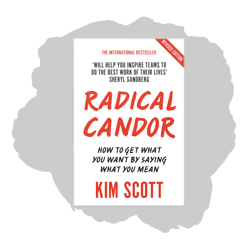 Radical Candor: Be A Kick-Ass Boss Without Losing Your Humanity
Radical Candor: Be A Kick-Ass Boss Without Losing Your Humanity
Kim Scott is a veteran of Facebook and Google and her insights on management are essential. In Radical Candor, she unpacks how to communicate in a clear and straightforward way in order to guide employees on career journeys that both fulfill their aspirations and serve the needs of the organization.
Key Takeaway From Radical Candor
Scott explains that every organization has rockstars and superstars. Rockstars are members of your team who are experts in a specific function and are driven to become the best in their field. Superstars are those who are on a rapid growth trajectory and focused on moving into leadership positions.
Superstars tend to get all the recognition and attention in most organizations. Scott makes the vital point that rockstars are as essential to the success of an organization as superstars. She also makes the brilliant observation that people can switch between being superstars and rockstars throughout their career. These insights will allow you to better appreciate and nurture the skills of both types of people on your team. It will also allow you to not pigeonhole someone in the same role forever.
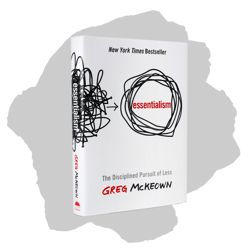 Essentialism: The Disciplined Pursuit of Less
Essentialism: The Disciplined Pursuit of Less
I won’t spend a ton of time summarizing Greg McKeown’s excellent book. Instead, you can dig more into Polly’s podcast about Essentialism from a while back. My only advice is to read the book and then focus only on what is the most important for you. You won’t regret it.
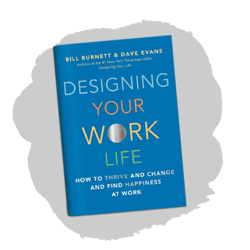 Designing Your Work Life
Designing Your Work Life
As an agency owner, I’m not looking for a new gig. I love what I do and couldn’t imagine doing anything else. So why recommend a book on career development? First because your career doesn’t stop when you own something. I have 25-30 working years ahead of me. Second, it provides great insight into how my team might pursue their career goals.
Beyond that it’s full of hacks to help you change your perspective on your situation and thinking smarter. These hacks are beneficial for anyone, especially leaders.
Key Takeaway From Designing Your Work Life
A lot of what Bill Burnett and Dave Evans talk about in this book is reframing. I found their insights into reframing problems especially helpful.
As we all know, most problems seem too large and intractable to solve. Their solution is to reframe a problem into what they call the Minimal Actionable Problem. Their recommended process starts with stopping long enough to remove drama from the equation and determine the actual problem you’re dealing with. Once you’ve done that, it’s possible to separate the problem into bite-sized chunks that can be solved, a minimal actionable problem (MAP).
Once you’ve identified your MAP, the next step is to not let great be the enemy of good. Identify your best doable option and take action. Do this enough times and you’ll have moved your organization forward in a big way.
 Bonus Article: Moments of Greatness: Entering the Fundamental State of Leadership
Bonus Article: Moments of Greatness: Entering the Fundamental State of Leadership
2020 was a difficult year to be a leader. During that time I was consistently inspired and encouraged by one of the Harvard Business Review’s 10 Must Read Anthologies, On Managing Yourself.
Robert Quinn’s contribution to the anthology focused on how to be more intentional about operating to your highest potential. The premise of his article is simple: when leaders are tested, they rise to the occasion and elevate the performance of everyone around them. He calls this state the fundamental state of leadership. His assertion is that the greatest leaders enter this state more often than when a crisis arises.
Quinn provides a simple three step process that all of us should follow:
- Recognize that you know how to lead in such a way that elevates the performance of you and everyone around you.
- Take a moment to analyze how you are performing compared to your best
- Ask four questions to shift into the fundamental states
- Am I results centered?
- Am I internally directed?
- Am I other focused?
- Am I externally open?
You should really just read the whole article. It will only take a few minutes, and will be transformative. And, if you hit the paywall, for my money, this is one of the best publications to subscribe to.
If you want to talk more about any of these books or any other things you’ve been learning, connect with me over on LinkedIn or shoot me an email. I’d love to talk.
Don’t miss out, get Brave News now
Join the ABN community and be the first to learn about trends in inbound marketing, branding, and web design.

